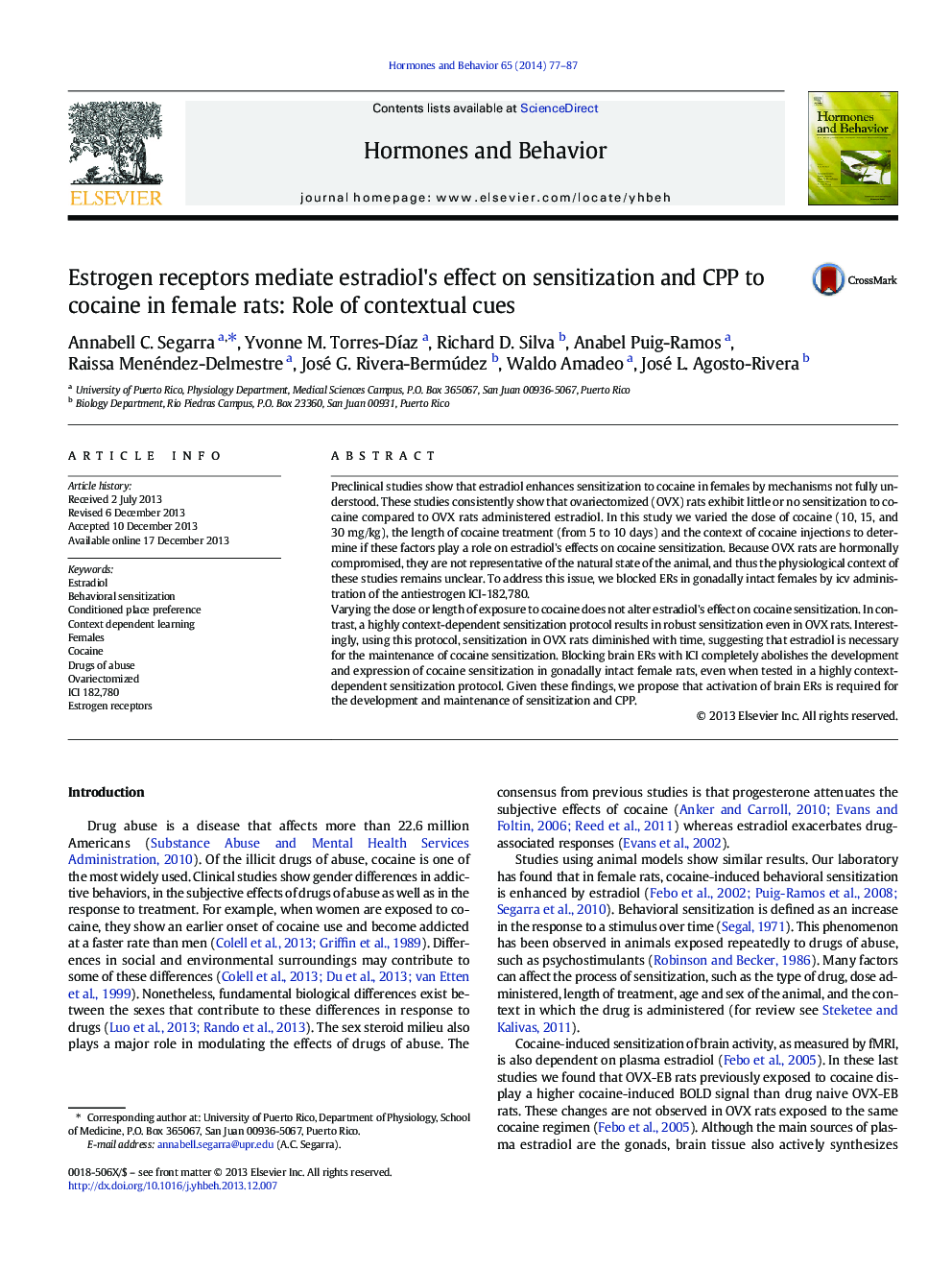| Article ID | Journal | Published Year | Pages | File Type |
|---|---|---|---|---|
| 322710 | Hormones and Behavior | 2014 | 11 Pages |
•Blocking estrogen receptors disrupts sensitization and CPP to cocaine in females.•Estradiol facilitates associations between cocaine and drug context.•Estradiol strengthens the acquisition and maintenance of cocaine sensitizations.
Preclinical studies show that estradiol enhances sensitization to cocaine in females by mechanisms not fully understood. These studies consistently show that ovariectomized (OVX) rats exhibit little or no sensitization to cocaine compared to OVX rats administered estradiol. In this study we varied the dose of cocaine (10, 15, and 30 mg/kg), the length of cocaine treatment (from 5 to 10 days) and the context of cocaine injections to determine if these factors play a role on estradiol's effects on cocaine sensitization. Because OVX rats are hormonally compromised, they are not representative of the natural state of the animal, and thus the physiological context of these studies remains unclear. To address this issue, we blocked ERs in gonadally intact females by icv administration of the antiestrogen ICI-182,780.Varying the dose or length of exposure to cocaine does not alter estradiol's effect on cocaine sensitization. In contrast, a highly context-dependent sensitization protocol results in robust sensitization even in OVX rats. Interestingly, using this protocol, sensitization in OVX rats diminished with time, suggesting that estradiol is necessary for the maintenance of cocaine sensitization. Blocking brain ERs with ICI completely abolishes the development and expression of cocaine sensitization in gonadally intact female rats, even when tested in a highly context-dependent sensitization protocol. Given these findings, we propose that activation of brain ERs is required for the development and maintenance of sensitization and CPP.
